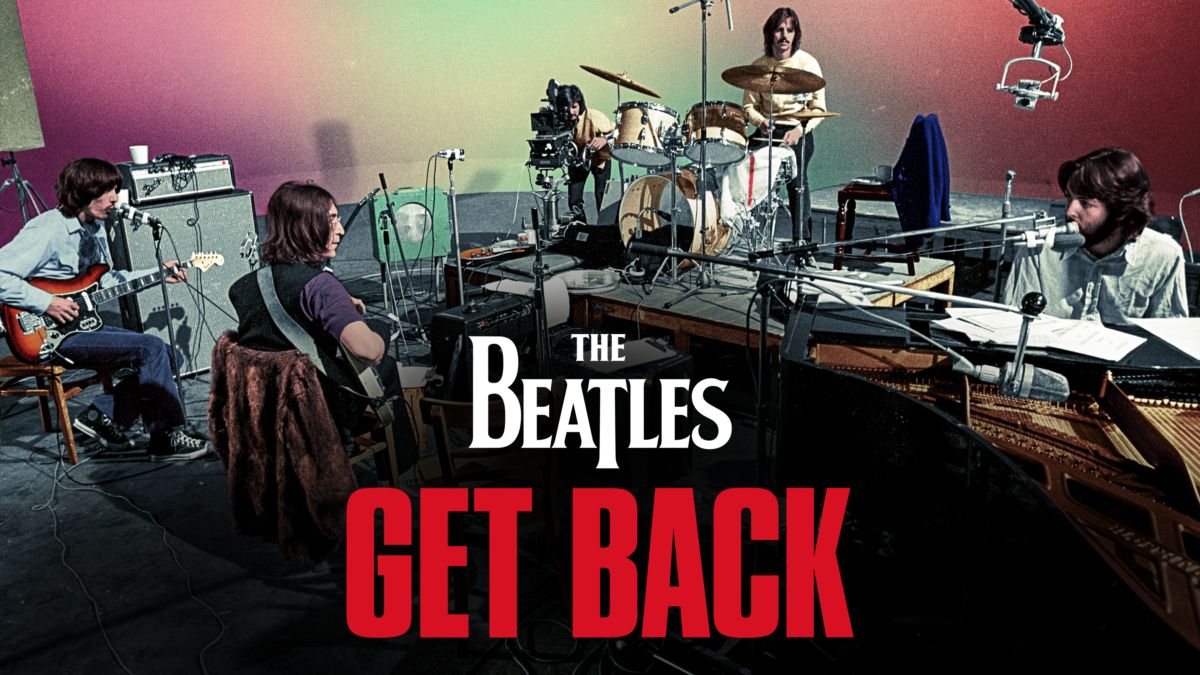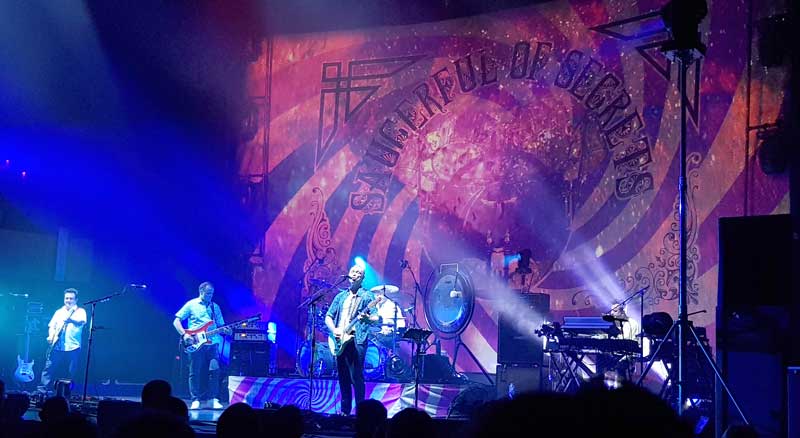You’d think that paying a couple of hundred quid to go to a non-work-related weekend-long conference might seem an odd thing to do, however when that conference is The Amazing Meeting and the panellists & speakers are some of the scientific & skeptical world’s most engaging and colourful personalities it suddenly doesn’t seem so weird. And in this case, that’s exactly what it was. Wow. That was the awkwardest introductory paragraph I’ve written in a while.
The skeptic/rationalist/humanist movement get an interesting set of feedback – customarily as a bunch of angry and/or smug religion-deniers – and in some cases this is true, however being in the midst of the crowd of 1000 attendees and listening to the wide range of speakers it became quite comforting to see that there was a diverse range of approaches, mentalities, and attitudes to this philosophy. In fact, there was quite a neat blogpost on the topic entitled “Why Skepticism Is Like The M25“. Far from taking anything negative away from the weekend, it left me with an extremely positive feeling that the people at the forefront of the public face of the skeptic movement are motivated by a sense of care for their fellow humans, and fighting to minimise harm that sometimes comes through the peddling of unproven and unproveable superstition, nonsense, and “woo woo”.
The event was a fundraiser for the James Randi Educational Foundation, headed up by skeptic legend of several decades and former stage magician James “The Amazing” Randi. It would be foolish for me to try to describe the content of the entire weekend, as there was about 14 hours of material to cover! However, some of the highlights for me were:
Richard Dawkins on “Evolution is the new Classics”, and how as a polydisciplinary theory it should be afforded a greater weighting in educational curricula. Having seen him getting snowed under with supercilious questions on TV shows by people attacking his anti-religious stance, it was a treat to see him in full flight delivering a pro-evolution presentation: a great man, of considerable intellect and considered of word.
Cory Doctorow delivered a very well structured hour on copyright systems, where our current models fail, and how democratisation of distribution channels can help artists generate an income. He spoke very impressively to keep the audience’s attention without any kind of visual component to the talk (other than his amazing “barcode” jacket).
Adam Rutherford gave a well-assembled piece on his attending The Alpha Course in North London for a series of articles he wrote for The Guardian.
Robin Ince interviewing James Randi was a rare treat, with Randi explaining just what it is that makes him pursue the debunking of “woo woo” and revealing what I was surprised to learn was an incredibly compassionate side. He had some brilliant stories about his friendship with Richard Feynman, about how he was instrumental in helping Johnny Carson show Uri Geller to be a fraud on national TV, and of his first ever “debunking” episode of a spiritual healer when Randi was 14.
I quite enjoyed the discussion panel of Tracey Brown, Gia Milinovich, Kate Russell, Martin Robbins, interviewed by “Skepchick” Rebecca Watson on technology and new media, and the similarly themed interview between Jon Ronson and Graham Linehan that took place later in the day. It strikes me that we’re in a position now where if one wants to create art, comment, or content, one can simply go ahead and do it. There’s been interesting side-discussions since then on how one attracts attention, but irrespective of any other rhetoric I think the key is to just get on with it.
The wonderfully ubiquitous Stephen Fry was interviewed in a pre-recorded video by Tim Minchin, and to watch the pair of them casually conversing away was an absolute treat. Fry sprinkled references and trivia in about medieval theology and linguistic development as nonchelantly as you would talk about having topped up your oyster card, and Minchin stayed engaged with the discussion the entire time, bringing his unique perspective to bear on many points that crossed the table. Whilst not a “traditional” interview, I loved every second of it.
Biology professor, blogger, and world-renowned skeptical firebrand PZ Myers gave a fantastic dissertation of what flavour of Atheism he saw himself as subscribing to. He also talked about some of the things going on in America and some of the beliefs being broadcast by people over there – some of these were received by an utterly stunned room. I guess I was a bit surprised at how PZ came across: I was expecting something on the whole more incendiary from the man at the centre of The Great Cracker Desecration of 2008. In the festival of soundbites that was TAM London, PZ contributed with this comment regarding the complaint that skeptics are often seen as obnoxious: “We shouldn’t be gratuitously obnoxious, we should be purposefully obnoxious“. Besides anything else, I thought he did an amazing job considering that the content of his original presentation had been more or less displaced by Tim Minchin’s “Pope song” the previous evening.
Cartoonist, author, poet, and general creative behemoth Alan Moore opened to a room of skeptics, rationalists and atheists about how he self-confessedly worships a second-century Roman sock puppet serpent god, but opined that there’s nothing wrong with having mythology and metaphysical beliefs as long as you don’t take them too literally. He told us that non-empirical knowledge was fine, as it can add so much to the world. And then he read us a 15 minute poem about walking through Northampton – which, were you to write it purely on the basis of evidence and empiricism, wouldn’t have been nearly a fraction as utterly captivating as it was. Moore’s bassy mellifluousness heightened the sense of wonder in the room, and several people remarked that his was the sort of voice which Tolkien probably had in mind when describing the Ents.
In addition to these talks, there were some interesting movements discussed – such as Simon Singh talking about knowledge & evidence advocacy group The Nightingale Collaboration, Karen James talking about The Beagle Project and its mission to build a replica of Darwin’s ship to sail the globe promoting science, the James Randi Education Foundation which promotes skepticism and supports skeptical activism, and the increasing international Skeptics In The Pub movement.
Far from being a self-congratulatory conclave of backslapping smug dicks with an agenda for squeezing all the wonder out of life, I found The Amazing Meeting to be an enthusiastic celebration of how awesome it is to be alive, and that we can and should continue to marvel at the infinite complexity of the natural world without feeling that we’re diminishing it by seeking to understand it.
As an extra special treat, on the Saturday night outside of the main conference, we were treated to a night of entertainment by “Tim Minchin and friends”: an opening set by the Amateur Transplants (they left me a little stationary, but many people seemed to enjoy their medical-revue style musical quippery), an investigation into the meaning of the work of the Insane Clown Posse by Jon Ronson (assisted by Tim Minchin on beatboxing), effervescent silliness by Chris Cox (the mind reader who can’t read minds), and the centrepiece of the evening – the premiere of Tim Minchin’s “Storm” animated short film (put together by Tracy King, DC Turner and Fraser Davidson).
Tim also treated us to a couple of bits of new material: the audience-worrying “Cont”, and a sweet Tim Burtonesque lullaby which had Liz & I clutching our abdomens in knowingly mean-spirited laughter. In keeping with the theme of the conference, he also performed his Pope song, which I still think is one of the best things on the whole internet.
So, in 1200 words, that’s what I got out of TAM. I’ve heard various bits of criticism pointed at the event for its cost (tickets were £200), but personally I felt that it was well worth it (working out to approximately £12 per hourly session, assuming that lunch & coffee both days were free), and I’ll definitely be looking at the lineup for next year when they start putting it together.
AND, as if by serendipity, today’s xkcd comic dovetails nicely with the working basis of what I’ve been talking about all along:
(if you want to read some *capable* blog coverage of the event, I’d recommend Stevyn Colgan (day 1 or day 2), or Martin Robbins’ Guardian liveblog of the event (start at the bottom and work back up). My Flickr gallery has a couple of other snaps, too.












